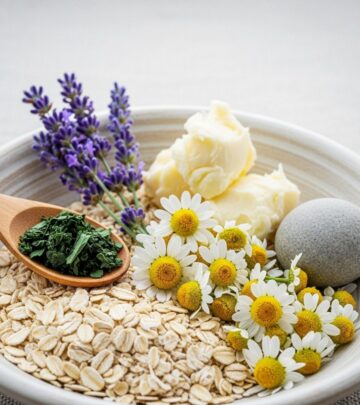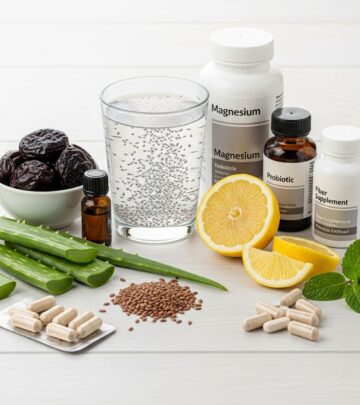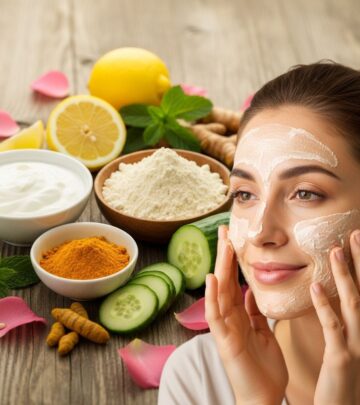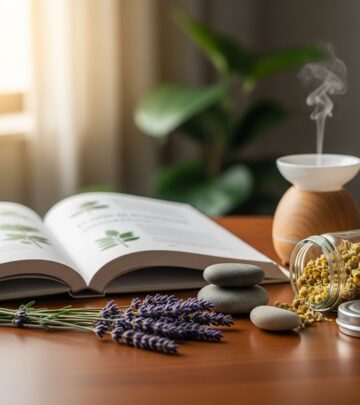Can HRT and Natural Remedies Work Together During Menopause?
Exploring the safety, benefits, and best practices for combining HRT and natural remedies for menopause symptom relief.
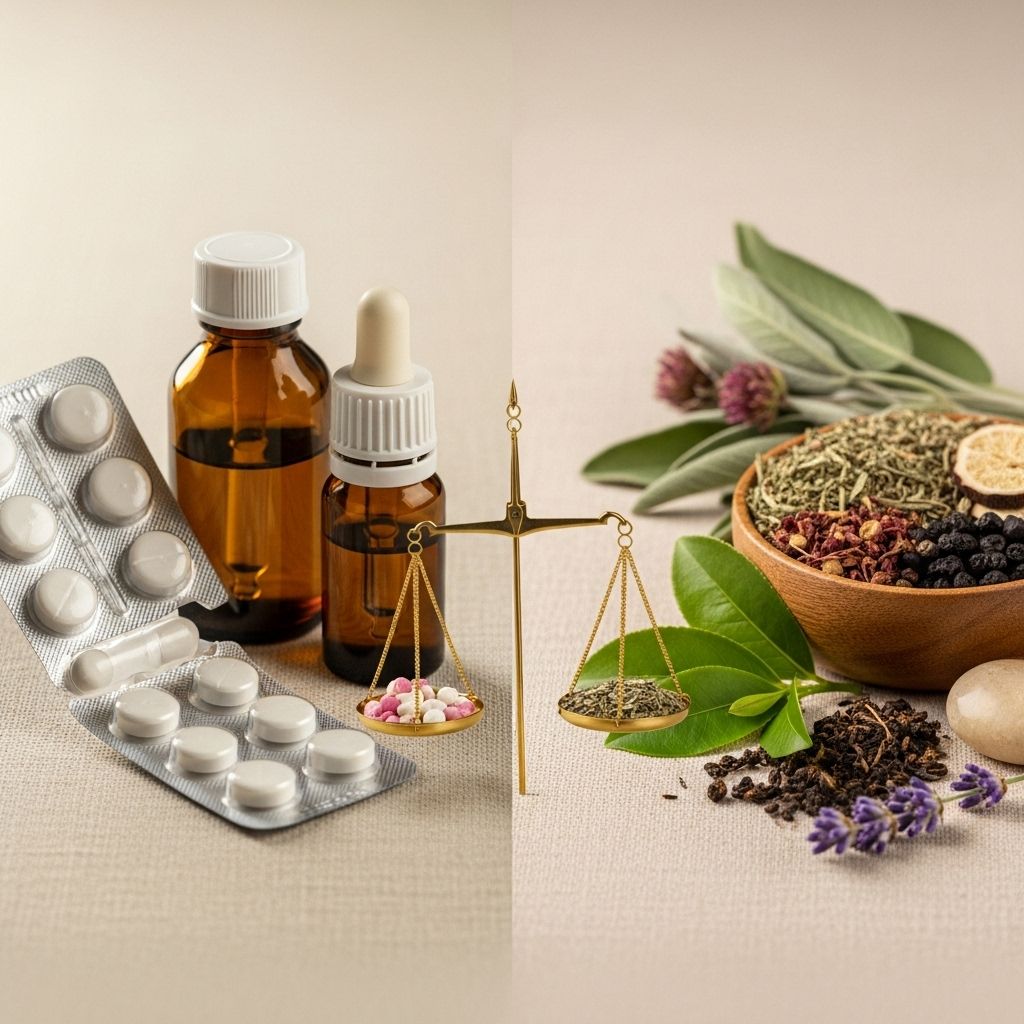
Introduction: Navigating Menopause with Conventional and Complementary Approaches
Menopause is a natural transition, but the symptoms—hot flashes, night sweats, mood swings, vaginal dryness, and sleep disturbances—can be disruptive and distressing. Women today have more options than ever to manage these symptoms, including hormone replacement therapy (HRT), natural remedies, or a combination of both. This article explores whether HRT and natural remedies can work together during menopause, what the research says, and how to make informed choices for your health.
Understanding Hormone Replacement Therapy (HRT)
HRT is a prescription treatment that replaces the hormones (estrogen and sometimes progesterone) that decline during menopause. The goal is to relieve symptoms and, in some cases, reduce the risk of osteoporosis. HRT is available in various forms, including pills, patches, gels, creams, and rings. The benefits and risks of HRT vary depending on a woman’s age, health history, and the type and duration of treatment.
Benefits of HRT
- Effective relief from hot flashes and night sweats
- Reduces vaginal dryness and discomfort during intercourse
- Helps prevent bone loss and fractures in some women
Risks and Considerations
- Increased risk of blood clots, stroke, and certain cancers with long-term use
- Not suitable for everyone, especially women with a history of breast cancer, heart disease, or blood clots
- Requires regular monitoring by a healthcare provider
Natural Remedies for Menopause Symptoms
Natural remedies, including herbal supplements, dietary changes, and lifestyle adjustments, are popular among women seeking alternatives to HRT. However, scientific evidence for their effectiveness is mixed, and quality control can be a concern.
Common Natural Remedies
| Remedy | Potential Benefit | Evidence | Safety Notes |
|---|---|---|---|
| Black Cohosh | May help with mild hot flashes and night sweats | Mixed study results; short-term use may be effective for some | Rare risk of liver damage; not for long-term use |
| Soy Isoflavones | May reduce frequency of hot flashes | Inconsistent evidence; food sources preferred over supplements | Generally safe in food form |
| Flaxseed | May help with mild symptoms | Limited evidence | Safe for most people |
| Evening Primrose Oil | Sometimes used for hot flashes | Little scientific support | Generally well-tolerated |
| Red Clover | Contains plant estrogens | Minimal evidence of benefit | Possible interactions with medications |
| Probiotics | May support vaginal and bone health | Emerging, promising research | Generally safe |
Lifestyle and Dietary Approaches
- Regular exercise can improve mood, sleep, and overall wellbeing.
- Maintaining a healthy weight may reduce the severity of hot flashes.
- A diet rich in fruits, vegetables, whole grains, and healthy fats supports general health during menopause.
- Stress reduction techniques, such as yoga, meditation, and mindfulness, may help with emotional symptoms.
Can HRT and Natural Remedies Be Used Together?
Many women wonder if they can combine HRT with natural remedies for a more holistic approach to menopause management. Here’s what you should know about using these therapies together.
Potential Benefits of Combination
- Symptom Relief: Using both approaches may provide more comprehensive relief, addressing both physical and emotional symptoms.
- Personalized Care: A tailored combination might allow for lower doses of HRT, reducing potential side effects.
- Lifestyle Support: Natural remedies and healthy habits can enhance overall wellbeing, complementing the effects of HRT.
Risks and Interactions
- Herb-Drug Interactions: Some herbal supplements (e.g., St. John’s wort) can interact with medications, including HRT, potentially reducing effectiveness or increasing side effects.
- Quality and Purity: Natural products are not regulated like prescription drugs, so their safety, potency, and purity can vary.
- Overlapping Effects: Combining therapies without medical supervision may lead to unexpected side effects or reduced efficacy.
Expert Recommendations
Always consult your healthcare provider before combining HRT with natural remedies. They can help you weigh the benefits and risks, monitor for interactions, and adjust your treatment plan as needed. Keep a detailed record of all supplements and medications you are taking to ensure safe and effective care.
Bioidentical Hormones: A “Natural” Alternative?
Bioidentical hormones, often marketed as “natural” HRT, are derived from plant sources and chemically identical to human hormones. However, they are not regulated in the same way as standard HRT, and there is no strong evidence that they are safer or more effective.
Key Points About Bioidentical Hormones
- Not proven to be safer than conventional HRT
- Lack of consistent dosing and quality control
- Not recommended by major medical organizations
- Body-identical hormones, which are regulated and tested, are a safer choice if you prefer a “natural” approach
Making Informed Choices: Practical Steps
Deciding whether to use HRT, natural remedies, or a combination requires careful consideration of your symptoms, health history, and personal preferences.
Steps to Take
- Assess Your Symptoms: Keep a symptom diary to track their frequency and severity.
- Research Options: Learn about the benefits, risks, and evidence for both HRT and natural remedies.
- Consult a Healthcare Provider: Discuss your symptoms and preferences with a doctor who specializes in menopause care.
- Monitor and Adjust: Regularly review your treatment plan and make adjustments as needed, under professional guidance.
Frequently Asked Questions (FAQs)
Q: Can I take black cohosh with HRT?
A: There is limited evidence of direct interactions, but both can affect hormone levels. Always consult your doctor before combining them.
Q: Are natural remedies safer than HRT?
A: Not necessarily. Natural does not always mean safe, and some supplements can cause side effects or interact with medications. Quality and purity can also vary widely.
Q: Can diet and exercise replace HRT for menopause symptoms?
A: For some women, lifestyle changes can significantly reduce symptoms, but they may not be enough for everyone. HRT remains the most effective treatment for moderate to severe symptoms.
Q: How do I know if a natural remedy is working?
A: Track your symptoms carefully. If you notice improvement, discuss it with your healthcare provider. Be aware that some remedies may take weeks to show effects, if any.
Q: Are bioidentical hormones a good alternative to HRT?
A: Bioidentical hormones are not regulated and lack strong evidence for safety and efficacy. Regulated body-identical hormones are a better-studied option if you prefer a “natural” approach.
Conclusion
Menopause is a unique experience for every woman, and there is no one-size-fits-all solution. HRT and natural remedies each have their place in managing symptoms, and for some women, a combination may offer the best results. However, it’s essential to make these decisions with the guidance of a healthcare professional, ensuring safety, effectiveness, and personalized care. By staying informed and proactive, you can navigate menopause with confidence and optimize your health and wellbeing during this transition.
References
- https://www.webmd.com/menopause/menopause-natural-treatments
- https://www.nhs.uk/medicines/hormone-replacement-therapy-hrt/alternatives-to-hormone-replacement-therapy-hrt/herbal-remedies-and-complementary-medicines-for-menopause-symptoms/
- https://www.goodrx.com/conditions/menopause/supplements-and-otc-meds
- https://pmc.ncbi.nlm.nih.gov/articles/PMC6419242/
- https://blog.ochsner.org/articles/the-best-natural-remedies-for-menopause-symptom-relief/
- https://womenshealth.gov/menopause/menopause-treatment
- https://hellobonafide.com
- https://www.uclahealth.org/news/article/how-increase-estrogen-naturally
- https://www.piedmont.org/living-real-change/are-natural-hormone-replacement-options-safe
Read full bio of medha deb


